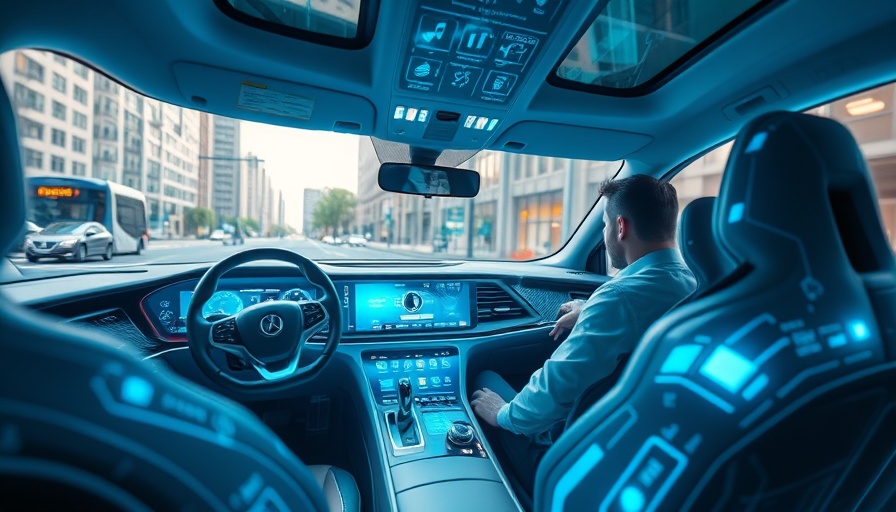
The AI-Powered Vehicle: Transition from Skepticism to Acceptance
The automotive industry stands on the brink of a revolutionary transformation as artificial intelligence (AI) technologies promise to redefine the experience of driving. Yet, as we hurtle towards this futuristic vision, one key question looms large: will drivers embrace this change? While AI is woven into the fabric of various new automotive technologies, there's a historical precedent for skepticism among consumers when faced with innovations that seemed promising but failed to deliver.
Understanding Historical Skepticism
Past innovations in the automotive sector, including advanced infotainment systems, adaptive cruise control, and beyond, faced bumpy rides due to complex interfaces and steep learning curves. Features often became more a source of frustration than convenience, leading to a wary public. AI is your newest solution to these challenges, yet history warns us that enthusiasm can quickly wane if expectations are not met.
Lessons from Voice Recognition Technologies
On the positive side, AI's journey has parallels with the evolution of voice recognition technology. Initially plagued with operational flaws, it has since matured significantly, notably thanks to platforms like Apple CarPlay and Android Auto that offer intuitive and responsive systems. As manufacturers strive to replicate this success, we may witness a resurgence in consumer trust if these AI systems can provide seamless interaction in everyday driving scenarios.
AI’s Potential Benefits: Enhancing Driver Interaction
The crux of AI's promise lies in its ability to simplify vehicle operations significantly. Imagine a scenario where you can easily navigate vehicle settings or ask about traffic conditions without taking your eyes off the road. Such enhancements could create a more enjoyable driving experience while minimizing distractions — a top concern for safety-conscious consumers.
Future Predictions: The Road Ahead
The roadmap ahead for AI in automotive applications is paved with both excitement and uncertainty. As automakers endeavor to blend advanced AI into the production line, factors like user feedback and real-world testing will play crucial roles in determining public acceptance. An early adopter program, incorporating consumer input in the developmental phase, may just turn the tide from skepticism to support — after all, transparency can forge a stronger bond of trust between manufacturers and drivers.
Connecting with the Automotive Community
For dealership owners and general managers, fostering discussions on AI technologies among staff and clientele can make a significant difference. Facilitating workshops or informational sessions can help demystify AI’s implications and benefits in vehicles, encouraging positive discourse around technology innovation. Emphasizing AI’s ease of use may also turn current skeptics into enthusiastic advocates.
 Add Row
Add Row  Add
Add 

 Add Row
Add Row  Add Element
Add Element 




Write A Comment